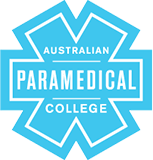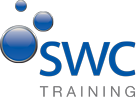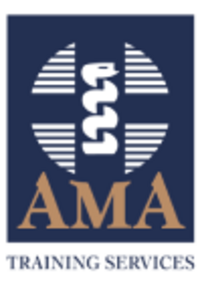
Allied Health courses in Lismore
Course providers in Lismore
The following providers offer Allied Health courses in Lismore.
















































Career Pathfinder
Skills shortages + AI Exposure
Discover in-demand careers and understand how each role may be impacted by AI and automation.
- See in-demand occupations across Australia
- Check AI Exposure ratings
- Compare training duration and average income
Common questions
Occupational therapists help patients perform tasks in daily life, while physiotherapists help patients improve their movement, strength and function. The term occupation refers to everyday life tasks, while physiotherapy refers to physical therapy. Both are science-based allied health roles that aim to improve quality of life through prevention, maintenance and treatment.
 Stephen Charlton
Stephen Charlton
You can become qualified to work as an occupational therapist by completing one of the following degrees, depending on your educational pathway:
- Master of Occupational Therapy (postgraduate degree)
Average duration: 24 months - Bachelor of Occupational Therapy (Honours)
Average duration: 4 years - Bachelor of Occupational Therapy
Average duration: 4 years
 Stephen Charlton
Stephen Charlton
You can become qualified to work as a physiotherapist by completing one of the following degrees, depending on your educational pathway:
- Doctor of Physiotherapy (postgraduate degree)
Average duration: 3 years - Master of Physiotherapy (postgraduate degree)
Average duration: 24 months - Bachelor of Physiotherapy (Honours)
Average duration: 4 years - Bachelor of Physiotherapy
Average duration: 4 years
 Stephen Charlton
Stephen Charlton
Yes, you need to complete an accredited degree to work legally as an occupational therapist or physiotherapist in Australia. The two core pathways are completing a bachelor’s degree or a postgraduate degree. The Occupational Therapy Council of Australia and Australian Physiotherapy Council are responsible for accrediting such courses.
 Stephen Charlton
Stephen Charlton
Yes, overseas-qualified practitioners can work in Australia by registering with the Occupational Therapy Board of Australia or Physiotherapy Board of Australia. Practitioners who are currently registered with the Occupational Therapy Board of New Zealand or Physiotherapy Board of New Zealand can apply directly for Australian registration. Other overseas-qualified practitioners have to fulfil the requirements listed on the relevant webpages of the Occupational Therapy Board of Australia and Physiotherapy Board of Australia.
 Stephen Charlton
Stephen Charlton
If you have already completed an approved degree in a different discipline, you can gain an accredited postgraduate degree to become qualified to work as an occupational therapist or physiotherapist. Examples of such degrees are a Master of Occupational Therapy, Master of Physiotherapy and Doctor of Physiotherapy. Postgraduate degrees in these fields may have additional entry requirements, including but not limited to health-related prerequisite subjects.
 Stephen Charlton
Stephen Charlton
In some cases, completing vocational education and training (VET) in a related discipline can allow you to meet the entry requirements for a bachelor’s degree in these fields. Entry requirements vary between educational providers. Some providers offer a VET entry pathway with a minimum of a Certificate IV, but others require a minimum of a diploma or advanced diploma. Some providers do not offer a VET pathway for these courses at all. Therefore, it’s wise to confirm the entry requirements for your desired bachelor’s degree before starting a VET course.
 Stephen Charlton
Stephen Charlton
In addition to completing an accredited degree, occupational therapists and physiotherapists will need to register with the Occupational Therapy Board of Australia or Physiotherapy Board of Australia to work in Australia. The Australian Health Practitioner Regulation Agency (AHPRA) administers practitioner registration on behalf of these boards. There are different requirements to gain registration for Australian-qualified practitioners, New Zealand-registered practitioners, and other overseas-qualified practitioners.
 Stephen Charlton
Stephen Charlton
Career paths for these professions include independent contracting, starting a practice, working in community care, paediatrics, mental health, rehabilitation, disability, medical or aged care sectors).
 Stephen Charlton
Stephen Charlton
Jobs and Skills Australia reports that the median full-time weekly earnings for occupational therapists and physiotherapists in 2024 are $1,526 and $1,710, respectively. These figures can be contrasted with Australian workers of all occupations, who earn a median full-time weekly income of $1,697.
 Stephen Charlton
Stephen Charlton
There is a significant demand for occupational therapists across Australia. Jobs and Skills Australia’s Occupation Shortage List indicates that the labour market had a shortage of occupational therapists across all states and territories from 2022 to 2024.
 Stephen Charlton
Stephen Charlton
There is substantial demand for physiotherapists in Australia. Jobs and Skills Australia’s Occupation Shortage List indicates that the labour market experienced a shortage of occupational therapists and physiotherapists in most states and territories from 2022 to 2024.
 Stephen Charlton
Stephen Charlton
Working as an occupational therapist or physiotherapist comes with the satisfaction of directly helping to improve patients’ quality of life. Furthermore, the job market is promising, as Jobs and Skills Australia reports there is significant labour market demand for both professions. The future outlook is also positive, as Jobs and Skills Australia reports that the annual employment growth in 2024 for occupational therapists and physiotherapists is 2,200 and 4,100, respectively.
 Stephen Charlton
Stephen Charlton
Further reading


What can you do with a Certificate IV in Allied Health Assistance (Physiotherapy)?
3rd March 2022
What can you do with a Certificate III in Allied Health Assistance?
8th January 2020All courses
- HLT33021 Certificate III in Allied Health Assistance
- HLT47321 Certificate IV in Health Administration
- CHC43315 Certificate IV in Mental Health
- CHC53315 Diploma of Mental Health
- HLT52021 Diploma of Remedial Massage
- HLT41120 Certificate IV in Health Care
- HLT54121 Diploma of Nursing
- Bachelor of Social Work
- ACM40818 Certificate IV in Farriery
- Master of Advanced Social Work
- Bachelor of Physiotherapy
- Bachelor of Sport Science
- Master of Health Science (Osteopathy)
- HLT42512 Certificate IV in Allied Health Assistance
- CHCSS00133 Induction to Disability Support
- HLT33015 & HLT43015 Dual Certificate III in Allied Health Assistance & Certificate IV in Allied Health Assistance (Physiotherapy)
- Master of Sports and Exercise Physiotherapy
- 22532VIC Course in Supporting People with Psychosocial Disability
- BSB40212 Certificate IV in Business (Health Practice Managers)
- Bachelor of Speech Pathology
- Bachelor of Sport and Exercise Science (Honours)
- Bachelor of Physiotherapy (Honours)
- Bachelor of Health and Community Services
- CHCCCS001 Address the Needs of People with Chronic Disease
- HLT33021 & HLT43021 Dual Certificate III in Allied Health Assistance & Certificate IV in Allied Health Assistance
- Bachelor of Medical Science
- HLT43212 Certificate IV in Health Administration
- CHCSS00075 Chronic Disease Self-Management
More about Allied Health courses
If you're looking to embark on a rewarding career in the healthcare sector, exploring the Allied Health Courses in Lismore could be the perfect starting point. With a diverse range of options available, including beginner courses such as the Certificate III in Individual Support (Disability) and Participate in Workplace Health and Safety, there’s something for everyone, even those without prior experience in the field. Local training providers like Career Employment Australia (CEA) and ACE Community Colleges offer hands-on training that can enhance your learning experience.
For those with a bit of experience or qualifications already under their belt, Lismore provides numerous advanced opportunities in Allied Health. Courses such as the Certificate IV in Mental Health and the Diploma of Remedial Massage allow you to deepen your expertise. Consider furthering your education with Bachelor degrees and Master degrees offered by prominent institutions like Southern Cross University and Bond University.
Studying in Lismore not only gives you access to remarkable learning opportunities, but it also places you within a supportive community dedicated to healthcare. The local training providers such as TAFE Queensland and Q Academy understand the unique needs of students and offer flexible learning options, ensuring your educational journey aligns with your personal goals. By pursuing one of the many nursing or medical technician courses, you will be well-equipped to contribute to the health and wellbeing of your community.
By taking the first step towards a career in Allied Health, whether through rehabilitation or speech pathology, you have the potential to make a significant impact on the lives of others. Embrace the opportunity to learn from the best in the industry at reputable institutions located near you. The journey begins now—explore the Allied Health Courses in Lismore to find your ideal course today.
